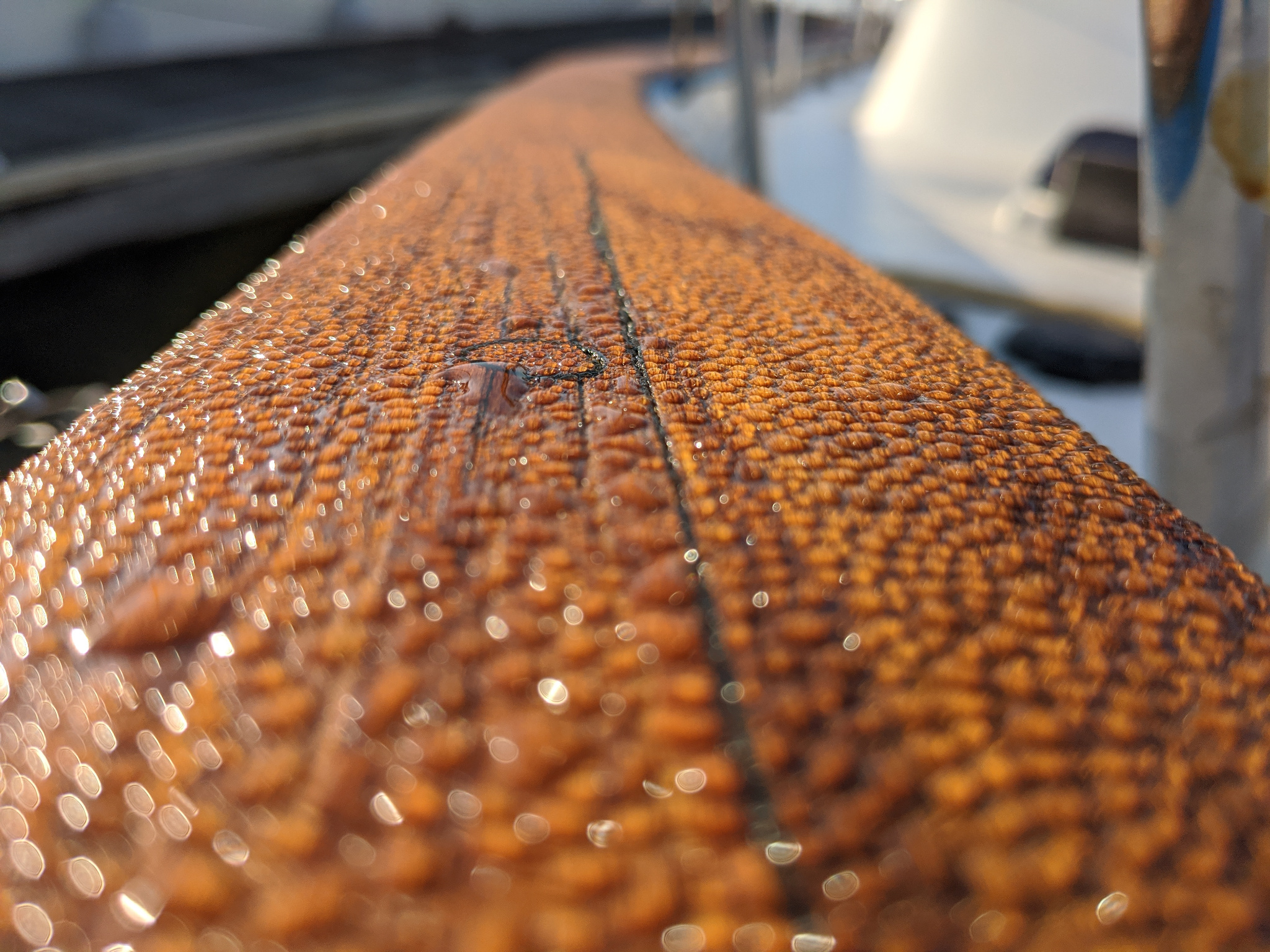There comes a time in nearly every boat owners life that they must confront. What should we do with the teak? You can ask 100 sailors what they would do, and get 100 different answers. Answers range from emphatically saying “NO TEAK!” to “You have to lovingly touch up the varnish weekly, its a meditative thing”.
Well, we didn’t go with the no teak option. Nymeria doesn’t have full teak decks, but she does have a fair amount of cap rails, hand rails, and accents. We have so far been able to skirt by asking the real “What should we do with the teak?” question by haring our boat cleaner to do some sanding, and we have just been lazily putting some oil on it. This is just enough to keep the wood from rotting. But the oil wears off within a month or so and it all just turns grey.

Shannon finally got inspired, and she spent nearly a month researching what we should do. Sand it down and varnish it all? Cetol? Rip it off and throw it away? Varnish looks amazing, but takes a lot of initial work, and lots of regular maintenance. Cetol doesn’t look quite as good, but its maintenance is only once a year other than touch ups. There are newer Cetol blends that are starting to look better, but still aren’t quite as good a varnish. We have to balance the fact that we are not very good ad doing the maintenance we need to keep it looking good, we barely did the maintenance to keep it from rotting. In the end we decided to go with a lightly stained Cetol for 2 coats, and clear UV Cetol for 4 sealant coats.
Last weekend we got to work. We’ve been in sanding and painting hell since then. First things first, we need to repair a few cracks, and fill several holes where the old screw covers have fallen off. We removed all the old exposed screws, mixed some epoxy with some teak sawdust for color, and filled any exposed seams and cracks. We then re-drilled the screw holes a bit deeper, and epoxied in some new teak bungs to fill the hole. Then came the sanding. 60 grit paper and a machine for hours to get as much of the grey out as possible. Once we get the bulk off, we wash the wood with a teak cleaner. this takes that last bit of old grey out and brightens the wood back to its nearly original red. Then we need to finish sand by hand with 120 grit to get the wood smooth and prepared for its first coats.
It took us all weekend just to get here. We have just over half the wood sanded and prepped. We are leaving the hand rails and rub rails for later, we don’t want to get too bogged down. As soon as those first coats get put on, the difference is clear. Its going to look amazing. By Monday night, we have everything in phase one with at least 2 coats. Only 4-5 more to go. Unfortunately we need 24 hours between coats. So every day this week, after work, we grab a beer, polish sand the last coat, and put on a new one. We have this process down to about an hour.

Only 78 more coats to go! (sigh)












Thank you for showing the Lifestyle of living onboard a sailboat. I look forward to my first yacht soon.
So many things to learn …Your help is appreciated. How would you describe the effect of your relationship from Living on Board vs Living on Land?
Good Luck Douglas! Living aboard is quite an adventure! The effect on relationships is significant. If there are any cracks at all, the small space and constant close contact is going to expose them. Its certainly not easy, but with the right person it can be rewarding. Its an interesting question though and might be enough for its own post. Stay tuned 🙂